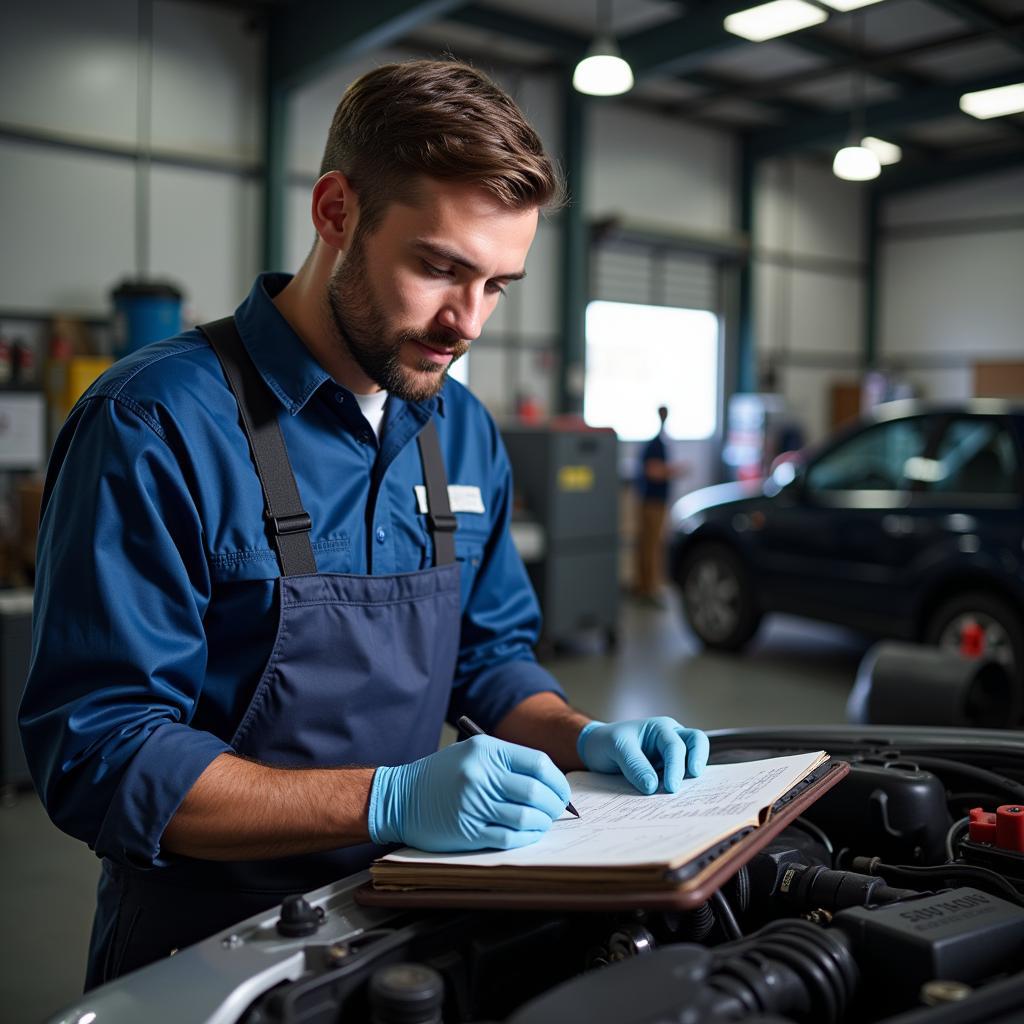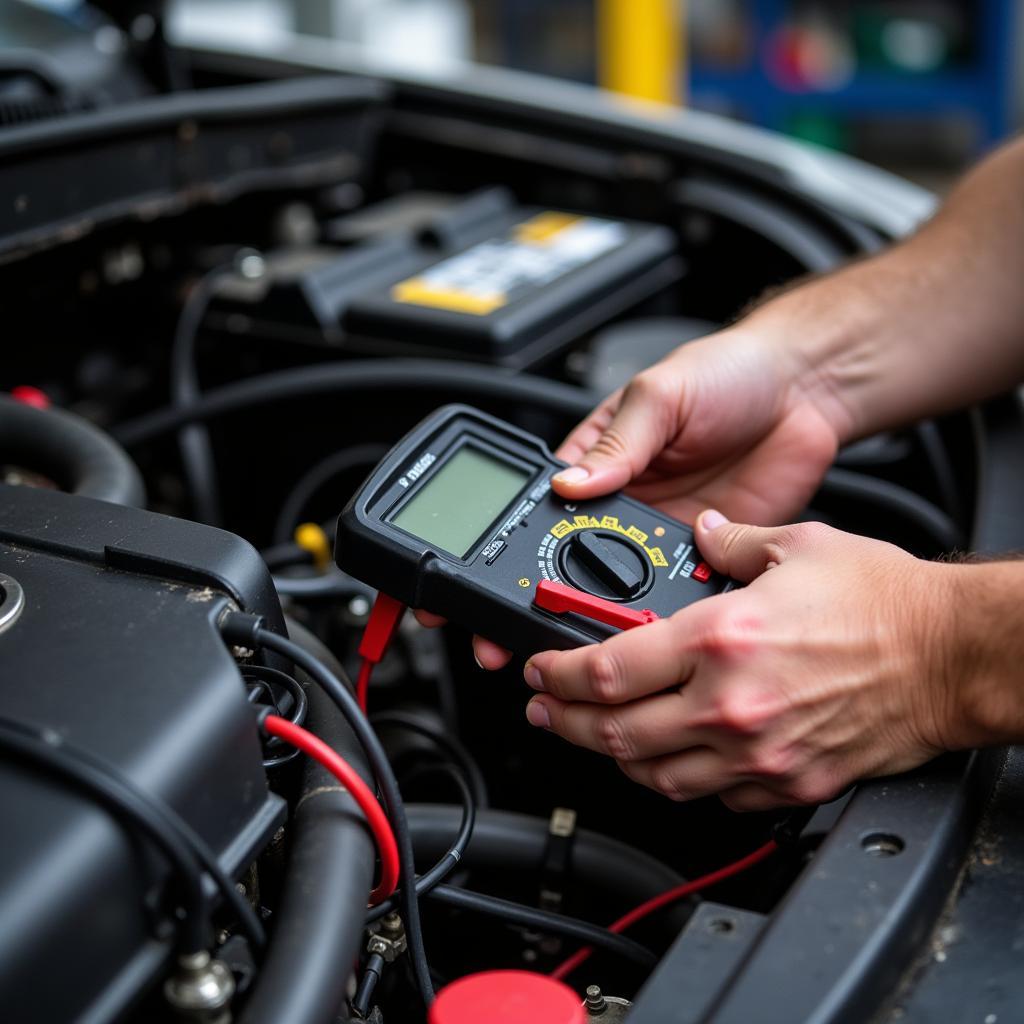What Are Preventative Care Services for Your Car?
Preventative care services are the unsung heroes of car maintenance. They often involve seemingly minor adjustments and checks, but their impact on your vehicle’s lifespan and performance can be monumental. Think of it as going to the doctor for a check-up instead of waiting until you’re seriously ill – a little attention now can save you a lot of pain and money later.
Why is Preventative Car Maintenance Important?
Just like your body needs regular checkups, your car thrives on routine maintenance. Preventative car care is about addressing small issues before they escalate into major problems.
Here’s why it’s crucial:
- Increased Lifespan: Regular maintenance keeps all components in top shape, significantly extending the life of your vehicle.
- Enhanced Safety: Preventative checks identify potential safety hazards early on, keeping you and your passengers safer on the road.
- Improved Performance: A well-maintained car simply runs better, offering smoother handling, better fuel efficiency, and optimal performance.
- Cost Savings: Addressing minor issues proactively is far less expensive than dealing with major repairs down the line.
- Higher Resale Value: A car with a well-documented service history is more appealing to potential buyers, fetching a better price.
 Regular Car Maintenance Checklist
Regular Car Maintenance Checklist
What is Included in Preventative Car Maintenance?
Preventative car care encompasses a range of services designed to keep your vehicle running smoothly. Here are some essential services:
1. Regular Oil and Filter Changes
This is the cornerstone of preventative maintenance. Engine oil lubricates moving parts, reduces friction, and helps cool the engine. Over time, oil degrades and loses its effectiveness, increasing wear and tear. Changing the oil and filter regularly ensures optimal engine performance and longevity.
2. Tire Rotation and Pressure Checks
Tires wear unevenly, and rotating them periodically ensures even tread wear, extending tire life and improving fuel efficiency. Checking tire pressure is equally crucial. Under-inflated tires can reduce fuel economy and impact handling, while over-inflated tires can lead to premature wear and a harsher ride.
3. Brake Inspections and Services
Your brakes are your car’s most critical safety feature. Regular inspections can identify wear and tear early on, allowing for timely pad replacements or rotor resurfacing. This proactive approach ensures optimal braking performance and keeps you safe on the road.
4. Fluid Top-ups and Replacements
Your car relies on various fluids to function correctly, including coolant, transmission fluid, brake fluid, and power steering fluid. These fluids degrade over time and need periodic top-ups or replacements to prevent costly damage.
5. Belt and Hose Inspections
Belts and hoses are crucial for engine operation, controlling components like the alternator, power steering pump, and water pump. Regular inspections can identify cracks, wear, or looseness, allowing for timely replacements and preventing unexpected breakdowns.
6. Air Filter Replacement
A clean air filter ensures optimal airflow to the engine, enhancing fuel efficiency and engine performance. Replacing a dirty or clogged air filter is a simple yet crucial preventative measure.
How Often Should I Get Preventative Car Maintenance?
The frequency of preventative maintenance varies depending on factors like your car’s make and model, your driving habits, and the climate you live in. However, a good rule of thumb is to follow the manufacturer’s recommended maintenance schedule outlined in your owner’s manual.
“Many car owners underestimate the importance of adhering to the manufacturer’s maintenance schedule,” says John Smith, Senior Automotive Technician at ABC Auto Services. “Following the recommended intervals ensures that potential issues are addressed before they become major problems, saving you time, money, and headaches in the long run.”
Beyond the Basics: Additional Preventative Measures
While the services listed above cover the essentials, here are some additional preventative measures to consider:
- Wheel Alignment: Ensures your wheels are aligned correctly, promoting even tire wear and improving handling.
- Spark Plug Replacement: Worn spark plugs can reduce fuel efficiency and engine performance.
- Battery Testing: Regular battery testing can help you avoid unexpected starting problems.
- Cooling System Flush: A coolant flush removes contaminants and ensures optimal engine temperature regulation.
 Mechanic Inspecting Car Battery
Mechanic Inspecting Car Battery
Conclusion
Investing in preventative car care is investing in your peace of mind. By addressing minor issues before they become major problems, you’ll enjoy a safer, more reliable, and ultimately, more cost-effective driving experience.
Remember to consult your owner’s manual for specific recommendations and to find a trusted mechanic to perform these essential services. Your car will thank you for it!

